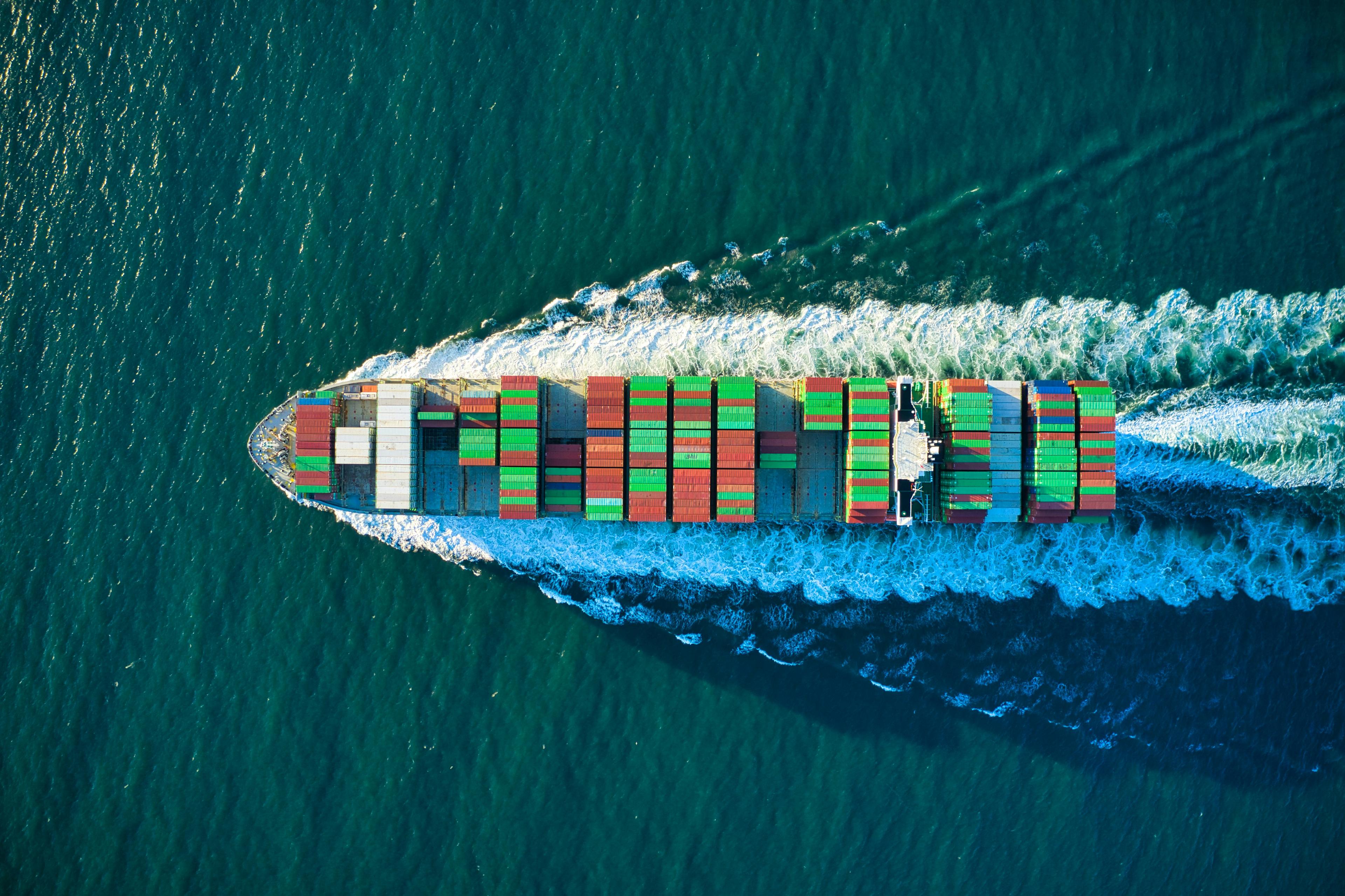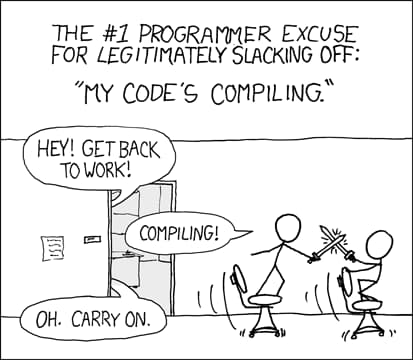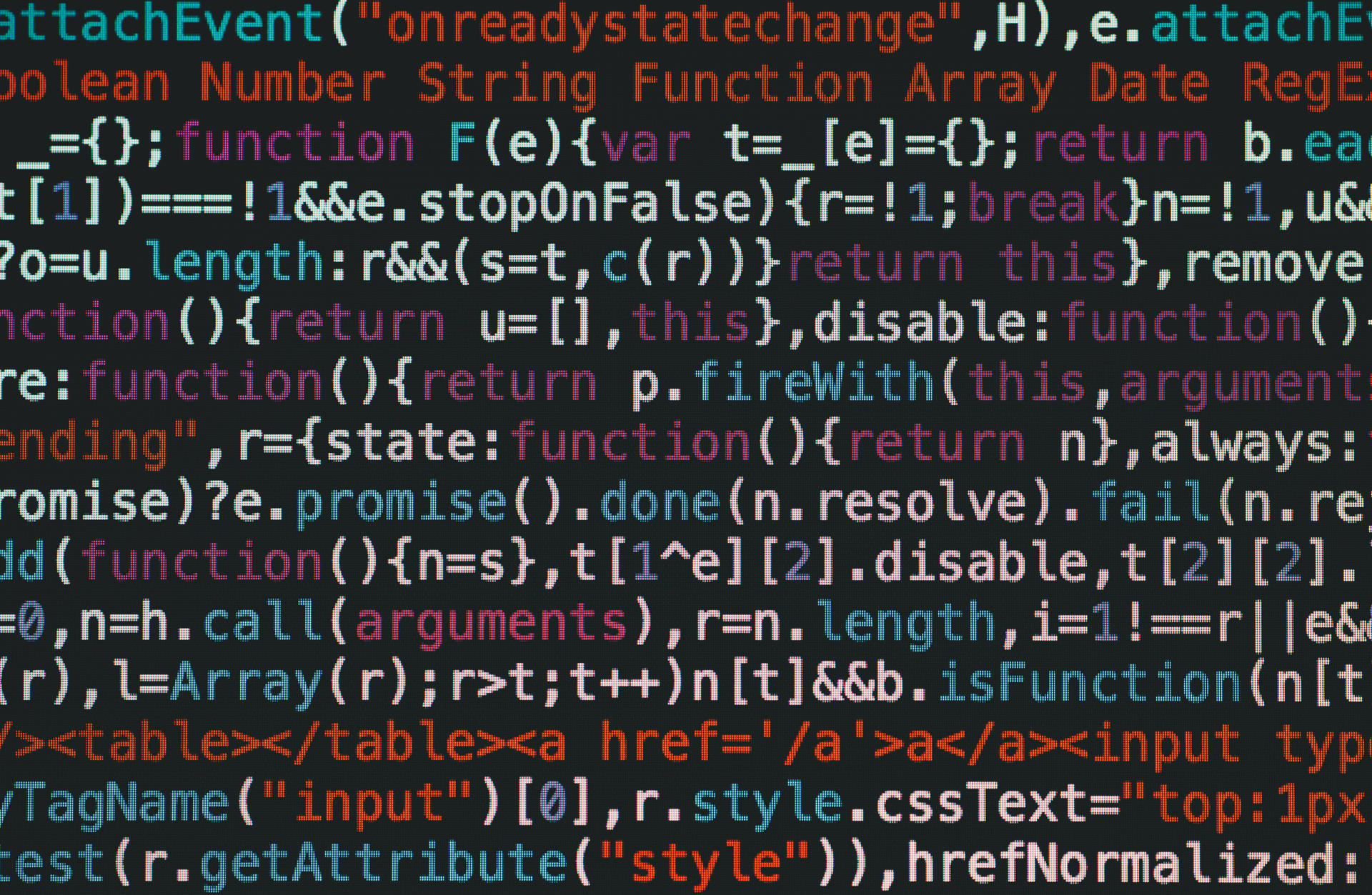Published 21 mei 2023
Rusty Docker? Never Again!
Fast and reliable Rust builds in Docker

At brainhive we primarily use Rust for most projects (assuming it's a good fit). We are quite happy with it but as we started to use it for bigger projects we ran into a couple of issues. Most of them were easy to fix, but one major issue remained…
Yes, we’re talking about compilation times. In Docker, to be specific. You don’t want to wait minutes (or worse) before changes are visible. So, let’s fix that!

XKCD compiling
Prerequisites
Buildings Rust projects require a lot of memory and CPU, so allocate enough resources. Especially when running on a Mac, as the Docker daemon runs in a Linux VM (which has its own resource constraints). Also, don’t forget to enable VirtioFS, as it will improve I/O performance.
First things first…
Let’s start with a basic Dockerfile:
FROM rust:slim-buster AS builder
WORKDIR /build
COPY Cargo.toml Cargo.lock .
COPY src src
RUN cargo build --release
CMD /build/target/release/test-appPretty simple, right? It copies the files we need, compiles our application using cargo (in release mode), and sets the target executable as our command. It works but is slow, as every change to any file will trigger a complete rebuild. So, why is this bad? Well, each time, we have to download the source code for the dependencies, invoke build scripts and compile our crate and its dependencies.
Pre-compile dependencies
In 2016, the Rust team announced support for incremental compilation. At the time, it was still in alpha stage but has significantly improved in the last couple of years. To this day, it is still a work in progress.
The goal is to (pre)compile dependencies based on the Cargo.toml/Cargo.lock files without copying the actual source code. As that would invalidate the layer on each change. The trick is to create an empty project, copy the cargo files and run cargo build:
WORKDIR /build/app
RUN cargo init
COPY Cargo.toml Cargo.lock ./
RUN cargo fetch && \
cargo build --release && \
rm src/*.rs
COPY src src
RUN touch src/main.rs && \
cargo build --releaseYou might wonder why we are using touch in the last instruction. The first command (cargo init) will create an empty project with a main.rs file in the source directory, replacing our code after the dependencies are compiled. The thing is, cargo relies on file modification time to track if a file has changed.
This works fine, but as we override main.rs when copying the source folder, the file modification time isn’t updated, and our changes are never reflected in the final binary. So, instead, we trick cargo into thinking that the file was changed recently.
Shared compilation cache
In 2017, Mozilla introduced sccache, a project similar to ccache, which accelerates build times by storing cached results on-disk or in a remote storage backend. It supports Rust, C, C++, and Nvidia’s CUDA. Our Docker build should be self-contained, which rules out any remote storage backend, so we’ll use on-disk caching, which is the default. Let’s begin with setting up sccache:
ENV SCCACHE_VERSION=0.4.1
RUN wget -O sccache.tar.gz https://github.com/mozilla/sccache/releases/download/v${SCCACHE_VERSION}/sccache-v${SCCACHE_VERSION}-x86_64-unknown-linux-musl.tar.gz && \
tar xzf sccache.tar.gz && \
mv sccache-v*/sccache /usr/local/bin/sccache && \
chmod +x /usr/local/bin/sccache
ENV RUSTC_WRAPPER=/usr/local/bin/sccacheThe next part is somewhat complicated as we need to store sccache artifacts somewhere, which persists between docker build runs.
While going through the Dockerfile reference, my eyes stumbled upon the --mount option when using the RUN command.
One of the things that this enables is that we can mount a persistent cache folder while running a command.
We can use this to store sccache artifacts between builds:
RUN --mount=type=cache,target=/root/.cache cargo fetch && \
cargo build --release && \
rm src/*.rs
COPY src src
RUN --mount=type=cache,target=/root/.cache touch src/main.rs && \
cargo build --releaseConclusion
Unfortunately, Rust in Docker requires quite a bit of tweaking to get it right. But once you’ve set it up, it’s a breeze. If you want to see the full Dockerfile, check out rust-docker.
Latest Posts
Discover more articles in our blog


